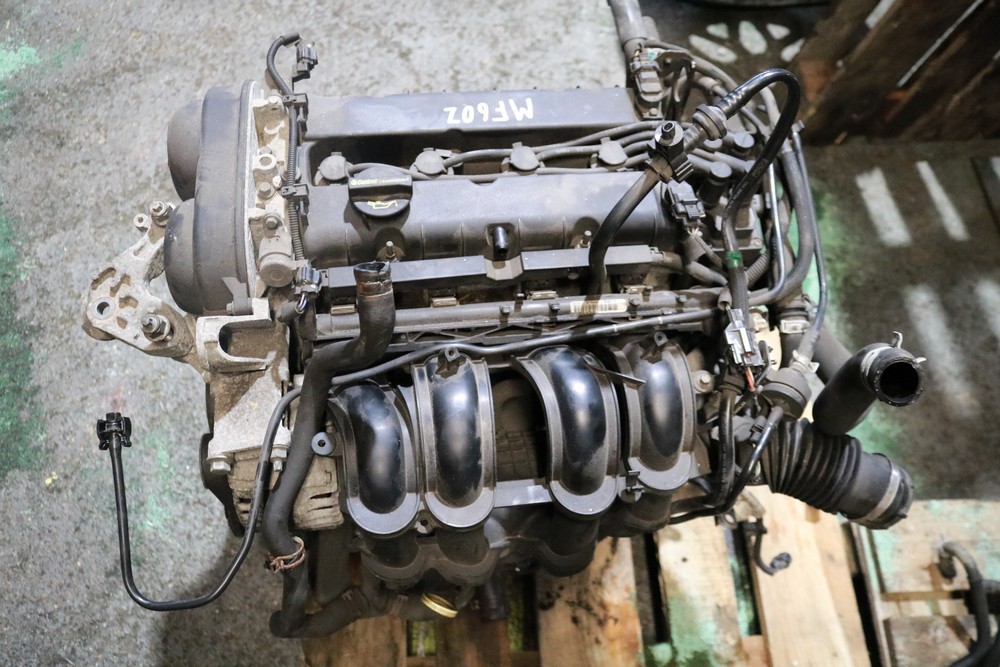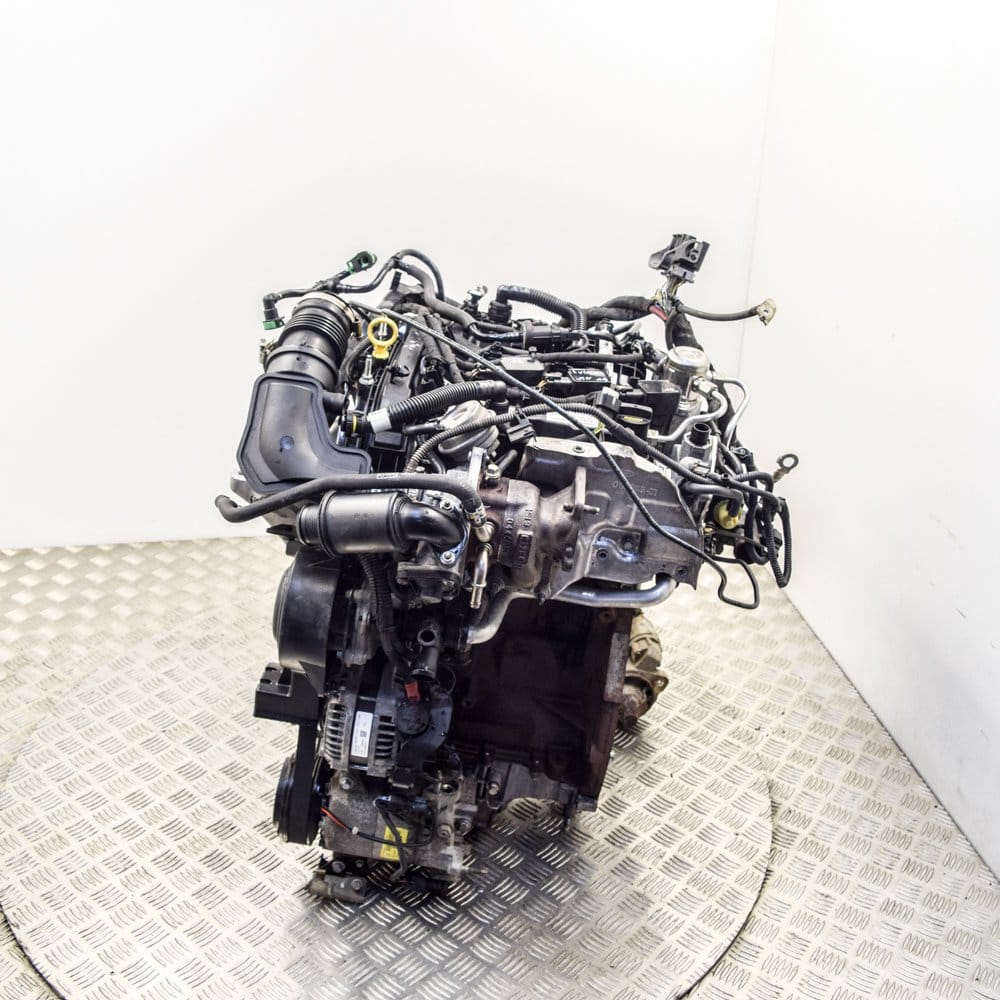Get the Most Out of Your Ford Fiesta Engine with Proper Care
Get the Most Out of Your Ford Fiesta Engine with Proper Care
Blog Article
The Future of Engines: Developments Driving Sustainable Power Solutions
As the auto sector navigates the essential shift towards sustainability, the future of engines is significantly defined by groundbreaking developments. Electric engine advancements, together with encouraging growths in hydrogen fuel cells and biofuels, are reshaping the landscape of power remedies.
Electric Engine Developments
The evolution of electrical engine growths indicates a crucial shift in the aerospace and automotive markets, driven by the immediate need for sustainable options to fossil fuels. This shift is defined by considerable improvements in battery modern technology, power electronic devices, and electrical motor design, which jointly boost the effectiveness and performance of electrical engines.
Current innovations have led to the creation of lighter, much more energy-dense batteries, such as lithium-silicon and solid-state batteries, which assure longer arrays and shorter charging times. In addition, improvements in electrical motor performance, such as the use of permanent magnets and progressed cooling systems, allow electric engines to operate effectively under differing problems. These improvements not just boost car performance however likewise add to a reduction in general power consumption.
In addition, the integration of advanced software program formulas has enhanced energy administration in electric automobiles, enabling for regenerative stopping and predictive billing methods. As manufacturers significantly welcome electrical propulsion, the aerospace and auto markets are experiencing a standard change towards greener innovations. This evolution not just fulfills regulatory needs but also straightens with customer preferences for eco-friendly transportation options, strengthening electric engines as a keystone of future sustainable movement.
Advancements in Biofuels
As the aerospace and automotive markets significantly prioritize sustainable power resources, developments in biofuels arise as a corresponding service to electrical engines. Biofuels, stemmed from organic materials such as crops, waste, and algae, offer a cutting-edge avenue for minimizing greenhouse gas exhausts and dependence on fossil fuels.
Current study has actually concentrated on boosting the efficiency and sustainability of biofuel manufacturing. Second-generation biofuels make use of non-food feedstocks, decreasing competitors with food supply and decreasing ecological impact. Innovations in artificial biology have made it possible for the design of microbes to create biofuels a lot more properly, leading to higher returns and reduced manufacturing prices.
In addition, the advancement of drop-in biofuels enables seamless integration right into existing framework, making it possible for a smoother change for sectors generally reliant on nonrenewable fuel sources. ford fiesta engine. These gas can be utilized in present engines without adjustments, promoting their adoption throughout different industries
Investments in biofuel innovation, in addition to helpful policies, are necessary to drive innovation and scalability. As the global neighborhood looks for to deal with climate change, biofuels use a practical, prompt option that straightens with the overarching goal of sustainability in transport and aeronautics.
Hydrogen Fuel Cell Technology
An expanding number of companies and scientists are exploring hydrogen gas cell technology as a practical choice to traditional source of power in transport and energy systems. This innovation converts chemical energy from hydrogen right into power through an electrochemical response, with water as the only byproduct, making it an ecologically pleasant alternative.
The core of hydrogen fuel cells is the fuel cell pile, where hydrogen particles are split into electrons and protons. The flow of electrons creates electricity, while protons move with a membrane layer to integrate with oxygen from the air, developing water. This process results in high performance and low discharges, placing hydrogen fuel cells as an essential player in the shift to lasting energy.
Considerable advancements have been made in boosting the resilience and performance of gas cells, alongside minimizing prices through ingenious production strategies. The growth of hydrogen manufacturing approaches, such as electrolysis powered by renewable energy resources, boosts the sustainability view of the total system. As facilities for hydrogen refueling expands and production methods become extra reliable, hydrogen gas cell technology holds fantastic pledge for decarbonizing numerous fields, consisting of sturdy transportation and fixed power generation.
Hybrid Systems and Their Impact
Hybrid systems stand for a significant advancement in lasting engine innovation, merging traditional interior combustion engines with electrical propulsion to maximize power performance and lower emissions (ford fiesta engine). This twin technique enables vehicles to make use of both power resources, allowing greater flexibility in energy consumption and lowering reliance on nonrenewable fuel sources

Along with environmental benefits, hybrid systems use consumers a practical transition in the direction of completely electric vehicles. They relieve array stress and anxiety by combining the ease of gasoline with the benefits of electric propulsion, making them an eye-catching alternative for a wider target market. As suppliers spend in hybrid technology, the growth of even more advanced battery systems and light-weight materials continues to improve performance. On the whole, hybrid systems stand for an essential step towards achieving sustainable transportation and attending to the urgent demand for eco friendly power solutions.
The Function of AI in Engine Layout
Leveraging sophisticated formulas and artificial intelligence strategies, the auto industry is increasingly incorporating expert system (AI) into engine layout procedures. AI enhances the efficiency and performance of style by evaluating huge datasets to determine optimal arrangements and performance specifications. This capability allows engineers to mimic different operating problems and forecast engine behavior under multiple scenarios, significantly lowering the time and price related to conventional prototyping techniques.
Moreover, AI assists in the advancement of sophisticated materials and burning processes customized for sustainability. By maximizing gas performance and decreasing exhausts, AI-driven layouts line up with worldwide efforts aimed at more info here reducing the carbon footprint of automobile click site engines. Artificial intelligence formulas can additionally forecast maintenance needs, causing boosted integrity and long life of engine parts.
Additionally, AI is critical in the combination of electrification innovations, such as hybrid systems, where it can enhance battery administration and energy recovery procedures. As the market moves towards even more sustainable power solutions, the function of AI in engine design ends up being progressively important, driving innovation and enhancing the efficiency of future engines. Ultimately, the cooperation in between AI and engine layout advertises a brand-new age of smarter, cleaner, and much more efficient auto innovations.

Conclusion
In verdict, the future of engines is being shaped by a convergence of innovative innovations that prioritize sustainability. Electric engine developments, biofuel advancements, hydrogen fuel cells, and crossbreed systems collectively add to a substantial decrease in exhausts and ecological influence. In addition, the combination of artificial intelligence in engine style boosts effectiveness and performance. These transformative services underscore a commitment to creating a cleaner, more sustainable automotive landscape, inevitably benefiting both society and the setting.
Electric engine advancements, together with encouraging advancements in hydrogen gas cells and biofuels, are improving the landscape of power services. Furthermore, renovations in electrical motor effectiveness, such as the use of irreversible magnets and progressed cooling systems, allow electrical engines to operate properly under varying conditions. By maximizing fuel efficiency and decreasing discharges, AI-driven designs straighten with global initiatives intended at lowering the carbon footprint of automobile engines. As the sector relocates in the direction of more lasting power remedies, the function of AI in engine layout becomes significantly crucial, driving development and improving the efficiency of future engines. Electric engine innovations, biofuel advancements, hydrogen fuel cells, and hybrid systems collectively contribute to a considerable decrease in emissions and ecological effect.
Report this page